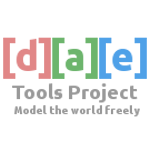Source code for daetools.dae_simulator.web_service_client
"""********************************************************************************
web_service_client.py
DAE Tools: pyDAE module, www.daetools.com
Copyright (C) Dragan Nikolic
***********************************************************************************
DAE Tools is free software; you can redistribute it and/or modify it under the
terms of the GNU General Public License version 3 as published by the Free Software
Foundation. DAE Tools is distributed in the hope that it will be useful, but WITHOUT
ANY WARRANTY; without even the implied warranty of MERCHANTABILITY or FITNESS FOR A
PARTICULAR PURPOSE. See the GNU General Public License for more details.
You should have received a copy of the GNU General Public License along with the
DAE Tools software; if not, see <http://www.gnu.org/licenses/>.
********************************************************************************"""
import os, sys, json
try:
# python 3
import http.client as http_client
from urllib.parse import urlencode
except ImportError:
# python 2
import httplib as http_client
from urllib import urlencode
[docs]class daeWebServiceClient(object):
# The base class for implementing web services accessing daetools web applications.
# Performs the low level tasks such as encoding the query arguments
# sending the GET/POST requests and receiving the responses with results to the clients.
def __init__(self, webServiceName, address, port):
self.http_connection = http_client.HTTPConnection(address, port)
self.webServiceName = webServiceName
[docs] def sendRequest(self, args, method = 'POST'):
# Low level function that sends the HTTP GET or POST query in JSON format.
# - HTTP GET: the query arguments will be encoded into the query url.
# - HTTP POST: the query arguments will be sent as JSON content.
if method == 'GET':
headers = {'Content-type': 'application/x-www-form-urlencoded',
'User-Agent' : 'DAE Tools WebService Application/1.0',
'Accept' : 'application/json'}
parameters = urlencode(args)
self.http_connection.request('GET', '/%s?%s' % (self.webServiceName, parameters), headers = headers)
else:
headers = {'Content-type': 'application/x-www-form-urlencoded',
'User-Agent' : 'DAE Tools WebService Application/1.0',
'Accept' : 'application/json'}
parameters = urlencode(args)
self.http_connection.request('POST', '/%s' % self.webServiceName, body = parameters, headers = headers)
[docs] def getResponse(self):
# Returns the query response from the web app as a dictionary object.
response = self.http_connection.getresponse()
response_str = response.read().decode()
json_data = json.loads(response_str)
# All responses where any of the following conditions is satisfied is an error:
# - status code that is not '200 OK'
# - 'Status' field does not exist
# - 'Status' field is not equal to 'Success'.
if (response.status != 200) or ('Status' not in json_data) or (json_data['Status'] != 'Success'):
reason = ''
if 'Reason' in json_data:
reason = json_data['Reason']
raise RuntimeError('The http request failed: %s %s\nDescription: %s' % (response.status, response.reason, reason))
# Accept only responses in JSON format.
content_type = response.getheader('Content-type', '')
if content_type != 'application/json':
raise RuntimeError('Invalid content type received: %s' % content_type)
# If the response does not contain the 'Result' field something went wrong.
if 'Result' not in json_data:
raise RuntimeError('The JSON response does not contain the Result field:\n%s' % json_data)
# Return the response results as a python object (it is function dependent).
# Clients should know how to interpret it.
return json_data['Result']
